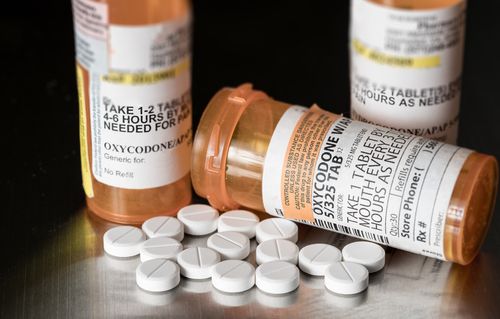
Take Extra Care When Treatment Includes Prescription Opiods
It is common for physicians to prescribe opioid medications to help patients manage pain and suffering following a motor vehicle accident or surgical procedure. These medications can alleviate pain and help individuals heal from their injuries. However, because opioids are highly addictive, they must be used with extreme caution and with strict adherence to doctor’s orders.
COMMONLY PRESCRIBED OPIOIDS
Oxycodone, Hydrocodone, Fentanyl, and Tramadol are some of the most commonly prescribed opioid medications. These are prescribed to help people manage pain while undergoing cancer treatments, while they heal from surgical procedures including limb amputations, or as their bodies recover from burn injuries.
DISCUSSING OPIOIDS WITH YOUR PHYSICIAN
You should thoroughly discuss your current health status with your physician before beginning a course of opioids. In particular, you should discuss any cases of sleep apnea, obesity, fibromyalgia, and whether or not you have anxiety or depression. You will also want to discuss any alcohol/drug addictions in your past, your family history in regard to substance abuse, and what prescription/non-prescription medications you are currently taking.
If there is not a safer alternative to opioid medication to treat your pain, you will want to use the lowest effective dose, for the shortest amount of time required. If you suffer from chronic pain, you should not use opioids, as you will build up a resistance. This will require a stronger dose and significantly increase your risk of addiction.
TAKE OPIOIDS ONLY AS PRESCRIBED
An average of 100 people per day die in the United States following an opioid overdose. Many of these occur when people don’t follow the instructions of their physician. When prescribed opioids, you should strictly adhere to your physician’s directives and any directions on the label. Crucially, never take opioids and operate a motor vehicle. Closely monitor yourself for signs of developing addiction including mood swings, depression, changes to sleep patterns, feeling “high,” and difficulty with decision making processes.
When you have completed your treatment, any remaining opioid medications should be properly disposed of. There are numerous locations in and around Boulder where you can drop off your unused prescription for disposal. It is inadvisable for you to keep these around, throw them in the trash, or flush them down the toilet.
We encourage you to contact Sloat, Nicholson and Hoover, P.C. at (303) 447-1144 to discuss your injuries. Our legal team can help you recover compensation for medical expenses, lost wages, and pain and suffering.
Related Articles
Articles and information to keep you up to date on personal injury news.
Podcast Feature: Colorado Trial Lawyer Connection
John Duguay - Triumph through Client Connection In a recent episode of the Colorado Trial Lawyer Connection podcast, hosted by Keith Fuicelli, Boulder-based personal injury lawyer John Duguay
Read More
What Damages Are Recoverable from a Dog Bite?
If you've suffered a dog bite injury, you may wonder what damages you can recover. Typically, damages for a dog bite claim include economic and non-economic losses, and
Read More
What Happens When You Get Hit by a Drunk Driver in Colorado?
When hit by a drunk driver in Colorado, it's crucial to take immediate steps, including calling 911, seeking medical attention, and gathering evidence such as photos and witness
Read More
